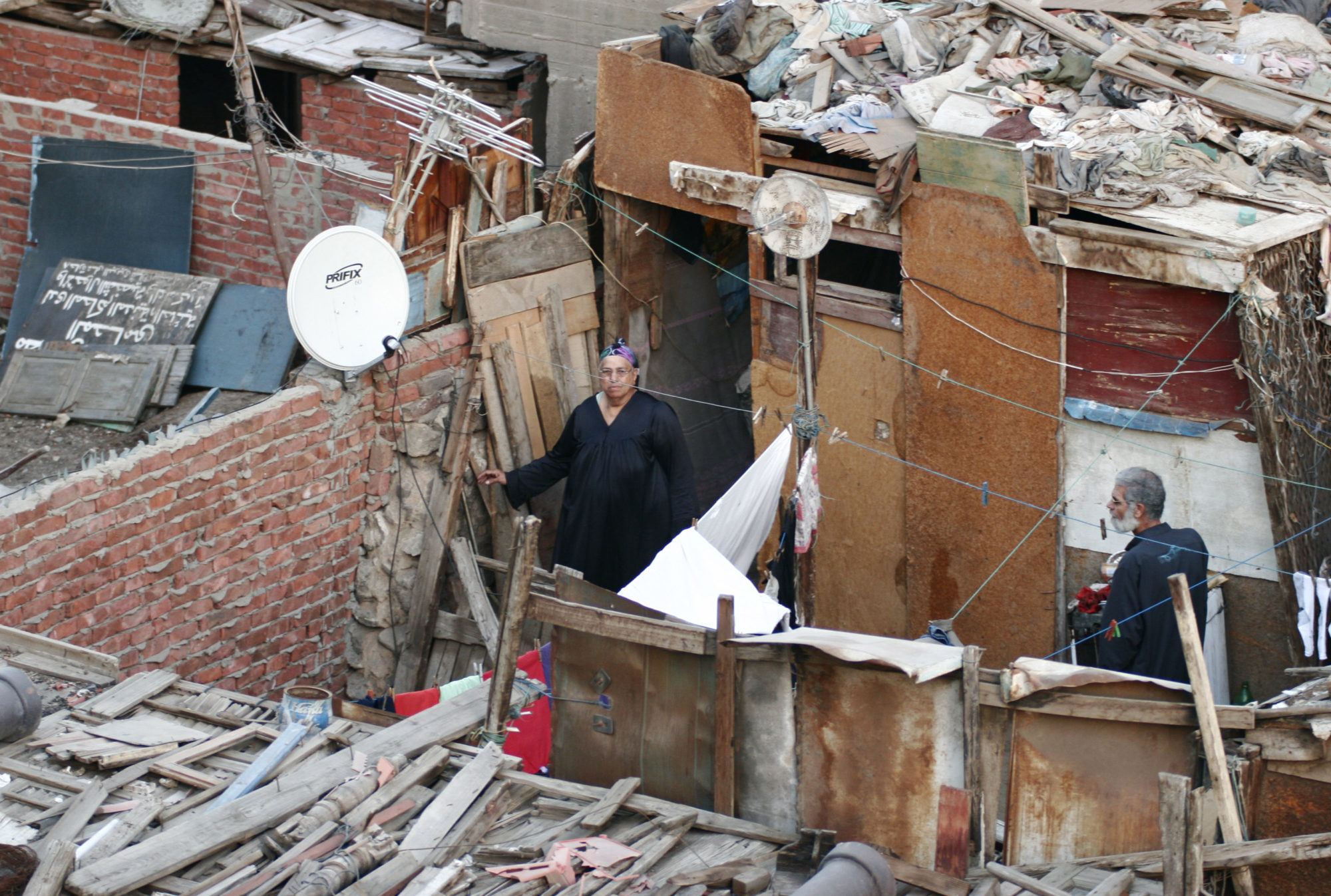
Alia Qotb and her husband Ahmed Gaballah live on a rooftop shack in Cairo. Qotb was born in the building’s basement
I first read Jeffrey Fleishman’s 2007 article about poor roof dwellers in Cairo nearly 10 years after he wrote it, while I was teaching a course at the American University of Beirut on narrative reporting and the legacy of Anthony Shadid. Jeff was a classmate during our Nieman year in 2001-02, and in my travels from Beirut after that, I saw him a few times during his stint as the Los Angeles Times Middle East correspondent in Cairo.
His article, “Viewing Life From the Roof,” captures for me the best that journalism and international reporting can do: it describes other, distant worlds with precision and detail, capturing at once the many emotions, memories, vulnerabilities, and strengths of ordinary people who live extraordinary lives. It relays important macro tales related to poverty and stalled development in Egypt, while conveying the indomitable human will to persevere regardless of the obstacles life throws at us. It touches on the variety of fairy tale and nightmarish conditions across the Arab region, but always returns to the central theme of the invincible human spirit in a fast-moving world that never stops.
Rarely in my decades of reporting and writing in the Middle East have I encountered such articles by foreign correspondents that accurately capture the multitude of interlocking dynamics that make the Arab region such a wonderful and exasperating place. These include hardy, colorful, or stressed individuals; vibrant neighborhoods in magnificent, often hard cities; and, countries of and for the ages, in a region both bound and plagued by the many complex relationships among its disparate people. To capture all this by using the life conditions and recollections of one old poor lady, the milieu of a single rooftop, and the instrument of just words, is as good as it gets in journalism, in my book.


